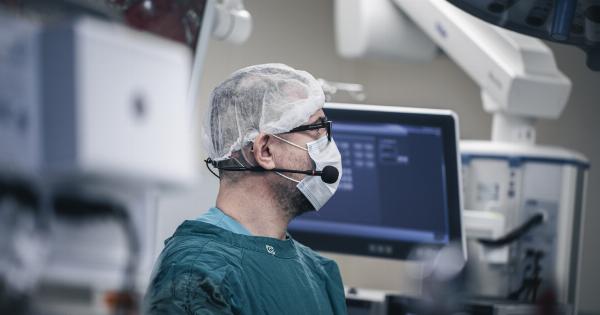Skin cancer is one of the most common types of cancer, and it affects many people globally. In most cases, skin cancer is caused by exposure to ultraviolet (UV) rays from the sun or artificial sources such as tanning beds.
The good news is that early detection of skin cancer is critical in ensuring successful treatment, and this is where smart technology comes in. Smart technology can help in diagnosing skin cancer accurately and quickly, which can save lives.
What is smart technology for skin cancer diagnosis?
Smart technology refers to the use of artificial intelligence, machine learning, and other advanced technologies to diagnose skin cancer.
Dermatologists can take pictures of suspicious skin lesions using smartphones, cameras, or dermoscopes and analyze the images using smart technology. Artificial intelligence algorithms can detect any potential cancerous cells and help doctors make a fast and accurate diagnosis.
Advanced technologies like reflectance confocal microscopy (RCM) and optical coherence tomography (OCT) are also used for skin cancer diagnosis.
How accurate is smart technology for skin cancer diagnosis?
Smart technology has revolutionized the process of skin cancer diagnosis. Studies have shown that smart technology is highly accurate in detecting skin cancer.
A review of multiple studies by systematic review and meta-analysis showed that the sensitivity of smart technology was 90.31% compared to 83.02% for dermatologists. The specificity of smart technology was 88.89% compared to 73.31% for dermatologists. This means that smart technology is more accurate than human dermatologists in detecting skin cancer.
The importance of accurate skin cancer diagnosis
Early detection and accurate diagnosis of skin cancer are critical in ensuring successful treatment and saving lives. Skin cancer is highly treatable when detected early, but it can be fatal when it spreads to other parts of the body.
Accurate diagnosis of skin cancer is crucial in ensuring the right treatment is administered. The use of smart technology in skin cancer diagnosis can help in the early detection of skin cancer, and this is why it is critical in saving lives.
The benefits of smart technology for skin cancer diagnosis
There are numerous benefits of smart technology in skin cancer diagnosis. These include;.
Faster diagnosis
Smart technology can detect skin cancer faster than traditional diagnostic methods. The algorithms used in smart technology systems are fast and accurate, and this helps in the early detection of skin cancer.
Improved accuracy
Smart technology provides more accurate diagnoses compared to human dermatologists. The use of artificial intelligence algorithms and other advanced technologies ensures that skin cancer is detected with high accuracy rates.
Non-invasive diagnostic method
Smart technology provides a non-invasive method of diagnosing skin cancer. Unlike traditional diagnostic methods that involve biopsy, smart technology is painless and non-invasive.
Patients are saved from painful and invasive procedures that could lead to complications.
Improves access to skin cancer diagnosis
The use of smart technology in skin cancer diagnosis ensures that patients can get access to skin cancer diagnosis from anywhere.
Smart technology allows dermatologists to diagnose skin cancer remotely and patients don’t have to travel to clinics or hospitals to get diagnosed.
Conclusion
The use of smart technology in skin cancer diagnosis has revolutionized the process of detecting skin cancer.
Smart technology provides accurate, faster, and non-invasive methods of diagnosing skin cancer, and this helps in ensuring successful treatment and saving lives. Smart technology is more accurate than dermatologists in detecting skin cancer, and it is a critical tool in early detection and diagnosis of skin cancer.
The use of smart technology in skin cancer diagnosis will continue to play a crucial role in improving skin cancer diagnosis and treatment.



























